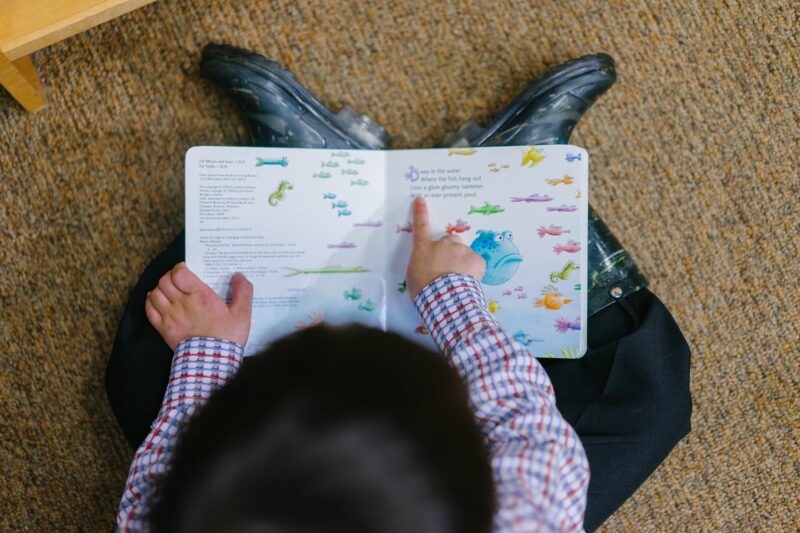While the summer season may be a great opportunity for you to have a fun and relaxing quality time with your kids, it also presents a certain disadvantage at best, and that is, conditioning your kids to prepare for the next school year or semester. Now, this isn’t apparent at the first few weeks of their summer vacation, as indeed, they deserve a well-needed rest, away from stress brought about by assignments, school projects, and foundation day performances. However, during the last few days of summer vacation, you might come to realize that there should at least be enough time set aside in order to prepare them for the upcoming academic year. Of course, suggesting this to your kids out of nowhere would earn you their ire or resistance, so knowing when and where to reiterate the importance of preparation is the key.
For the most part, at least one week away from the new school year would be a perfect chance for you to set them up for the challenges ahead. Setting their expectation and familiarizing them with the advantage of preparation would not only make them flexible to change, but also, make them realize that every new school year or semester presents a challenge that they may have not encountered before. If you were to deliver this message effectively, not only would they be able to face the new school year with courage and an invigorated interest in learning something new, they might even thank you in the long run.
Now, if like most parents, you have no idea on how to prepare them firsthand, then look no further than our valuable tips:
1. Review their older lessons.
The thing about the new school year or semester is that it may contain a lesson plan that involves a much updated and advanced form of knowledge or principles which were already taught before. This is where reviewing your kid’s older lessons would come in handy. If they were to return to the basics, they would at least be able to piece the puzzle when it comes to a more advanced version of that particular lesson. Take Mathematics, for example. The simplest lessons would involve addition, subtraction, division, and multiplication. Perhaps at your kid’s recent school year, they were taught separately, focusing on one equation first before proceeding to the other. Now, imagine if the next school year would tackle an equation that involves solving a Math problem that has all of the recent equations combined. If your kids were to go to school unprepared, they may experience outright confusion, an offset that is further described by a modern term, “information overload.” Now, imagine if your kids were to review the recent equations from the past year, and then be presented with the newer, much complicated equation, they may be able to comprehend it at first glance, and even have a “Eureka!” moment – “Oh, so I just have to follow the MDAS procedure in order to solve this advanced Math problem.” Take it from us, reviewing helps a lot.
2. Mentally preparing them for the new school year/semester.
You might think that this is similar to the very first pointer, since reviewing older lessons may indeed stimulate your kid’s memory and analytic skills. However, when we say mental preparation, it also has something to do with their studying habits. The way we handle habits with our kids would determine if they’ll be able to successfully set them up to overcome newer lessons in class. Think about it, mental preparedness provides that well-needed edge and focus that your kids may need to concentrate on their studies. If they are motivated to learn in a very timely manner, you can expect that they’ll never struggle when it comes to studying routines and lessons. Think of it as motivating them to think that they can achieve anything, and that they can comprehend anything that the teacher says, as long as they listen, and listen hard. This motivation would not only help with their grades, but with their overall future as well. Some of history’s prominent figures such as Steve Jobs, Bill Gates, Albert Einstein, etc. showcased confidence and resiliency, even when under pressure. The confidence to present what they know and the resiliency to show that what they’ve known and learned throughout many years would stand with no argument may prove beneficial for your kids in the long run.
3. Socially preparing them for any possible new friends in the upcoming school year.
Kids often shy away from new acquaintances, especially if they’re quiet and lonesome. This is normal for most kids, but such qualities should not be left unchanged. Many kids grow up to be introverts due to the fact that they struggle to interact with others. This is the result of parents not orienting their kids about the “outside world.” Teach your kids to be sociable, friendly, and kind. Let them know that it is okay to be shy, but not to the extent that they’d shy away from everyone they’d meet. Tell them that no man is an island, and that everyone needs a friend. Of course, you should also teach them to be wary of who they’d hangout with, so as to avoid any bad influences along the way. Teach them to be vigilant about the people in their surroundings, to be cautious of the company that they’re letting themselves into, and the kind of personalities they might want to have around. Remember, it is easier to teach your kids about the dos and don’ts of hanging out and making friends during their early years. Do this effectively and you may never have to experience any hassle once they reach their teenage years.
4. Preparing all of the right tools for the upcoming school year.
This is just one of the most typical ways of preparing for a new school year. Buying a new bag, notebooks, crayons, pencils, erasers, etc. Understandably, every new school year brings forth expenses in the form of school supplies. Of course, as a parent, it is only right for us to provide our kids with the best tools to help with their education. Buy everything in high quality and do not cheapen out on any writing materials that they may need, unless you’d want your kids to come home with a broken pencil, snapping in half just when the notes on the blackboard starts pouring in. Let them enjoy the advantage of high-grade supplies and watch as they do academic wonders with these materials.
Now, for OFWs who value the education of their kids back at home, they’d go through any obstacle just to send every well-needed amount for their education. OFW parents aren’t just focused on sending their spouse the monthly budget after every payday, but they are also motivated on providing for their kids, may it be for the tuition fees or the purchase of school supplies. In such case, a very reliable money remittance service is needed, to ensure that the tuition fees will be paid in full, every time. No need to worry, as that is made possible by a well-trusted remittance center, and nothing indicates a more trusted name than Cebuana Lhuiller. With Cebuana Lhuillier’s Pera Padala Service, you are ensured an easy, quick, and safe way to send and receive money. With more than 2,500branches nationwide and accredited international partners, this money transfer service is made available to clients within and outside the Philippines. All transactions are real time, which enables clients to claim the money as soon as the sender completes the sending process in the branch. So for our beloved OFW patrons, feel free to visit any of our international partners – we assure a fast, easy and secure transaction.
For a complete list of our international partners, you may visit our website at https://www.cebuanalhuillier.com/pera-padala/.



